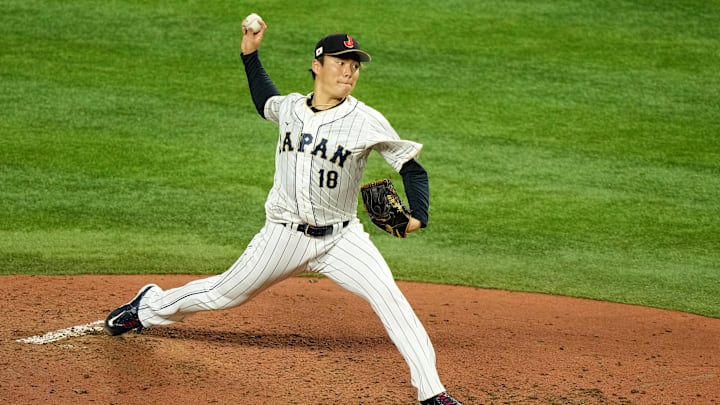The Los Angeles Dodgers signed Shohei Ohtani to a contract that was unprecedented in two ways: 1) the price tag of $700 million and 2) the deferring of payments. Ohtani will only be paid $2 million each year for the next ten years, leaving $680 million to be paid out between 2034 and 2043. Jon Becker discusses the present value of this contract here.
So it's $68M deferred by ten years for each year of the deal. The CBA calls for a 5% interest rate, meaning:
— Jon Becker (@jonbecker_) December 11, 2023
•The present value of each $68M is $41,746,101.24. Add that to the $2M, and, the PV/CBT hit of each year is ~$43.7M.
•The present value of the whole deal is ~$437.5M https://t.co/s8nRsI8GC4
There are a few reasons as to why deferments work. From a player's perspective, while he is getting paid less on the whole, the team he plays for is able to afford other star players on the roster. The player will be on a more competitive team during his tenure. From a team perspective, delaying payments allows them to avoid tax hits and save money long term.
From just Shohei Ohtani's perspective a deferment is ideal for a few reasons. First, Ohtani receives tens of millions of dollars each year in endorsements alone, so he doesn't "need" his money now. Also, by delaying his payments until after his time in California, Shohei can avoid high tax rates in the Golden State.
While a player has never deferred over 90% of his contract, deferments are nothing new in baseball. In fact, the Cardinals have used this approach with their legacy players in recent years. Adam Wainwright is getting paid $1 million a year for the next decade, the Cardinals are still paying Matt Holliday $1.5 million a year, and the team will pay Nolan Arenado $3 million annually from 2032-2041. These values are mere fractions of the player's sum total for his contract, but they show that the Cardinals have made deferment deals with players in the past.
Other historical players such as Bobby Bonilla, Ken Griffey Jr., Chris Davis, and Manny Ramirez had millions of dollars deferred as well on their contracts. Deferments have been in baseball for decades, and Ohtani's deferments may change the way contracts of the future are written.
Deferments may be the key to the Cardinals signing Yoshinobu Yamamoto.
The St. Louis Cardinals should take a similar approach with their contract offer to the 25-year-old Japanese phenom, Yoshinobu Yamamoto. The Cardinals have been rumored to be interested in signing him for months now, and deferments could be the way they sign him. Yamamoto's price has reportedly been increasing by the week, possibly eliminating the Cardinals from contention. Teams such as the New York Mets, New York Yankees, and Los Angeles Dodgers are the top suitors, and they could be driving up the price for the righty out of Japan, thus putting the Cardinals out of contention.
However, if John Mozeliak and Bill DeWiit Jr. can sell Yoshinobu Yamamoto on the city of St. Louis, perhaps they can work the finances out to make him more affordable in the present. Yamamoto will more than likely draw sponsorships and advertisers from Asian markets at a rate below Ohtani's, but he will receive endorsement deals that will allow him to take less money now. Also, the Cardinals will have two Japanese superstars on their team in Lars Nootbaar and Yamamoto, thus increasing marketing deals from Asian companies.
Yamamoto's contract may reach $300 million over ten years; that's a lot of money, especially considering the fact that Bally Sports could cut the Cardinals out in September of 2024 and the fact that the team still needs another reliever. However, St. Louis could manage his salary if they defer a portion of the contract. While they won't be able to convince Yamamoto to defer over 90% of his contract, perhaps they could convince him to defer around $5-$10 million annually.
Another tricky aspect of signing Yamamoto is the posting fee for Japanese players. You can read more about those fees here. If St. Louis signs Yamamoto for a 10-year, $300 million contract, the posting fee would be $53.375 million to be paid to the Orix Buffaloes.
The Cardinals' payroll hasn't reached $175 million for next year, and the first luxury tax threshold doesn't hit until a team's payroll reaches $237 million. There is plenty of financial flexibility in there for the Cardinals to sign Yamamoto, especially if he agrees to defer a portion of his salary. St. Louis should work its hardest at pitching the team and the city, and DeWitt should stretch his wallet a bit more to bring in a potential ace to the starting rotation.
